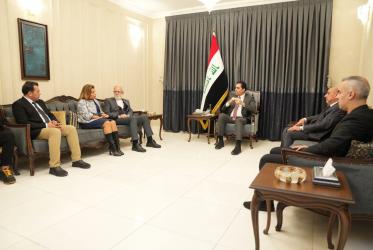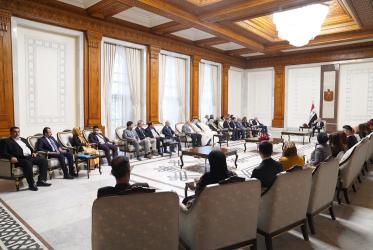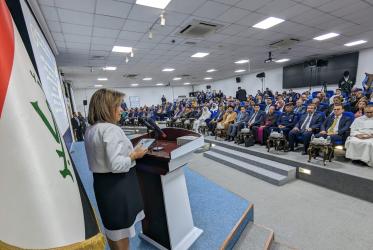Statement and call for solidarity:
The present situation in Iraq is a tragedy for many, both Christians and Muslims, and deeply worrying. One effect of this has been the departure from Mosul of its Christian population.
Credible reports we have received during the past few days suggest that virtually the entire Christian community of Mosul has now left the city, forced into this decision through the actions of the self-described “Islamic State”, (formerly known as ISIS).
The Christians have been told by those in control of Mosul that they had until this weekend to either convert to Islam, pay the Jizya (poll tax for non-Muslims) or move out of the city taking only their clothes with them.
If they fail to take one of these steps they have been threatened with execution by the local government. A considerable number of Muslims, particularly from the Shia community, are also feeling compelled to depart.
The Christian refugees are taking refuge for the moment in neighbouring monasteries and villages and some have sought refuge in the Kurdish region of Iraq.
It is with great sorrow that we see the apparent ending of a Christian presence in Mosul, present there since the earliest centuries of Christianity.
On 17 July, Patriarch Louis Raphael Sako, the Chaldean Catholic Patriarch of Baghdad, issued an appeal to the wider world, setting out in detail the impossible situation with which the Christian community in Mosul are now being confronted.
Patriarch Sako spoke of how “In recent days, there has been written the letter 'N' in Arabic on the front wall of Christian homes, signifying 'Nazara' (Christian), and on the front wall of Shiite homes, the letter 'R' signifying 'Rwafidh' (rejecters).”
Such a development has very sinister echoes. Patriarch Sako’s appeal rightly states that the developments in Mosul contravene “the regulation of Islamic thought which is expressed in the Qur’an.” He also draws attention to the long history of positive co-existence between Christians and Muslims in Iraq and in the wider Middle East.
Mindful of Patriarch Sako’s words, I want to join with others in emphasizing how disturbing – and tragic – we find such developments. At the recent meeting of the WCC Central Committee in Geneva a statement was issued stressing the WCC’s “great concern” over these “tragic developments of the situation in Iraq.”
In particular I want to emphasize at this moment of crisis that the WCC “affirms the role of the churches in Iraq and the region who are committed to engage in constructive dialogue with other religious and ethnic communities so that the pluralistic heritage of their societies is protected and secured. The WCC assures those churches of the wide ecumenical support of such a process.”
The WCC also “urges the Iraqi authorities and encourages non-military international support for the initiation of an inclusive political process to strengthen fundamental human rights, in particular with regards to religious freedom, to urgently establish the rule of law and to ensure equal rights for all citizens.”
Please join with me in praying for all the people of Iraq at this time, and in particular those from minority communities, both Christian and Muslim, who have been forced to leave their homes.
WCC general secretary
Rev. Dr Olav Fykse Tveit



